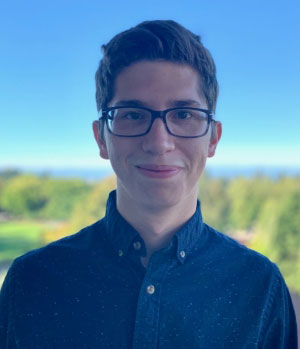News and Updates
Contact
Faculty of Social Science
Social Science Centre
Room 9438
Western University
T. 519-661-2053
F. 519-661-3868
E. social-science@uwo.ca
Cody Groat joining Department of History and Indigenous Studies program
June 15, 2021Story by Rob Rombouts/photo submitted
 Cody Groat is joining the Department of History, with a joint appointment to the Indigenous Studies program.
Cody Groat is joining the Department of History, with a joint appointment to the Indigenous Studies program.
Groat is Kanyen'kehaka (Mohawk) and a band member of Six Nations of the Grand River. His research focuses on public history and Indigenous cultural revitalization. In particular, Groat is interested in the approach of provincial, federal, and international bodies toward Indigenous cultural heritage and 'historic sites'.
These approaches changed over time, as relations between Indigenous and settler societies shifted. In the 1910s and 20s, Indigenous people were viewed as a ‘dying race’, and cultural sites were seen as remnants of a dying people. Through the mid-20th century, Indigenous nations and stakeholders challenged the ideas of culture sites as belonging to ‘Canadian culture’. Into the 21st-century, there is increasing awareness and integration of Indigenous ways of knowing, and the importance of cultural sites within their own nations.
“There was a struggle to assert which narrative would be dominant,” said Groat.
While Groat labels his work as public history, he notes that public history “does not really or necessarily reflect what is happening in Indigenous communities.”
Understanding and preserving Indigenous cultural sites and history goes beyond maintaining individual sites. “It’s about the stewardship of entire landscapes,” said Groat. “Knowledge, history and stories in landscapes are vital to the well-being of nations.”
Groat said he was drawn to Western as it is home to the oldest MA public history program in Canada. He sees an opportunity to help bring knowledge of Indigenous cultural stewardship to the program. “It’s exciting that there’s a chance to re-envision what public history as relating to Indigenous peoples might mean,” he said.
“We see Groat helping us develop an Indigenous aspect to our program, which will help make our undergraduate and graduate students better educated and better trained since all cultural and heritage organizations in Canada will increasingly need to deal with Indigenous issues,” said Michelle Hamilton, professor in the Public History program.
The Truth and Reconciliation Report called for all museums, archives, and related institutions to better represent Indigenous history in Canada and in their relationships with Indigenous communities.
“Such institutions are slowly starting to respond to this call and so they will need trained staff to move forward,” said Hamilton.
There is also increasing public understanding and reaction to the impact and legacy of the Residential School system and settler-Indigenous relations.
“These issues are not new of course, but the public history field is starting to respond to them in more meaningful ways,” said Hamilton.
Groat’s father was a survivor of the ‘60s scoop, and his grandparents were survivors of the Mohawk Institute Residential School. Groat said that, growing up, he did not have a strong connection to his Indigenous culture. Through his PhD research focusing on how Indigenous history has been perceived, Groat found ways to connect to his own identity and learn more about it.
Along with his academic work, Groat serves on the Canadian Commission for UNESCO Advisory Committee for the Memory of the World Program. He is also the President of the Indigenous Heritage Circle. The IHC is an Indigenous-designed and Indigenous-led organization, dedicated to the advancement of cultural heritage priorities that are of importance to Métis, Inuit, and First Nations Peoples in Canada.
“There is so much in Indigenous cultural history that is not in academic public history,” said Groat “I am working to try to bridge that gap.”

